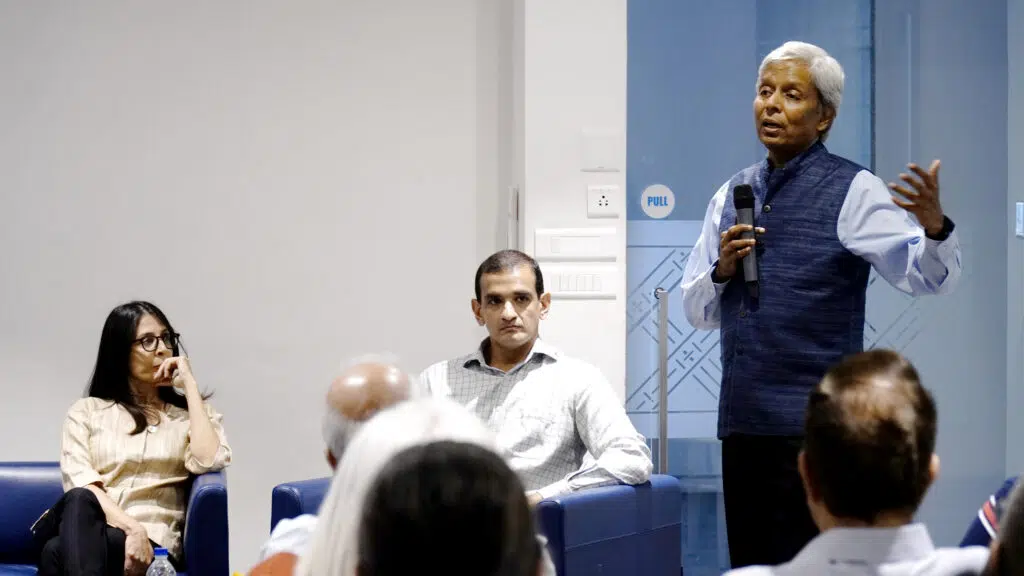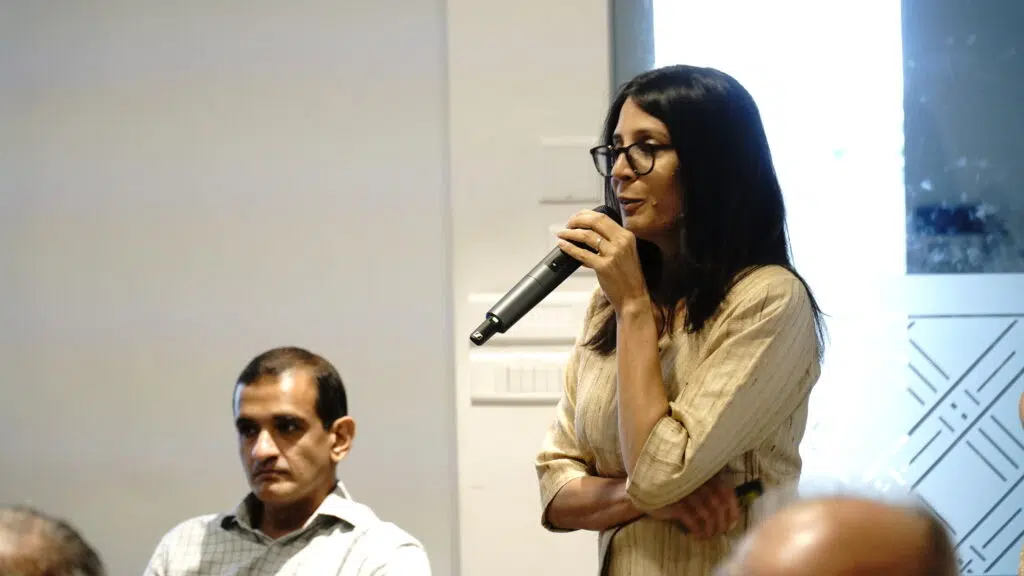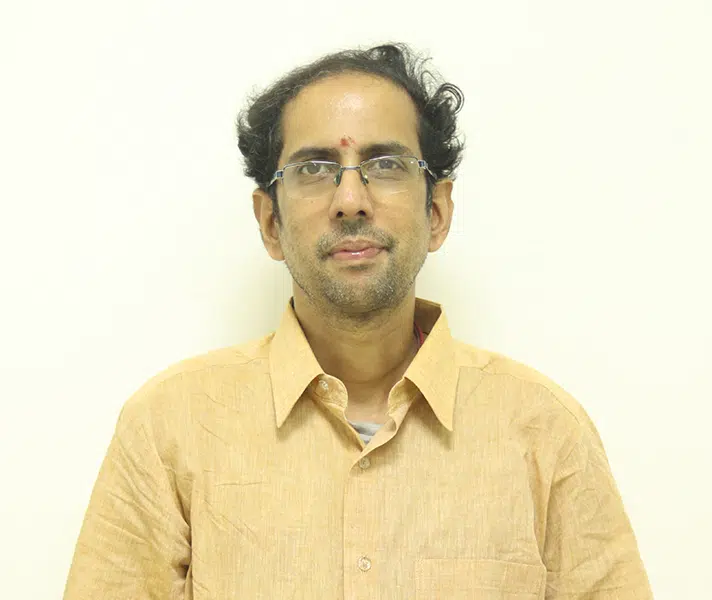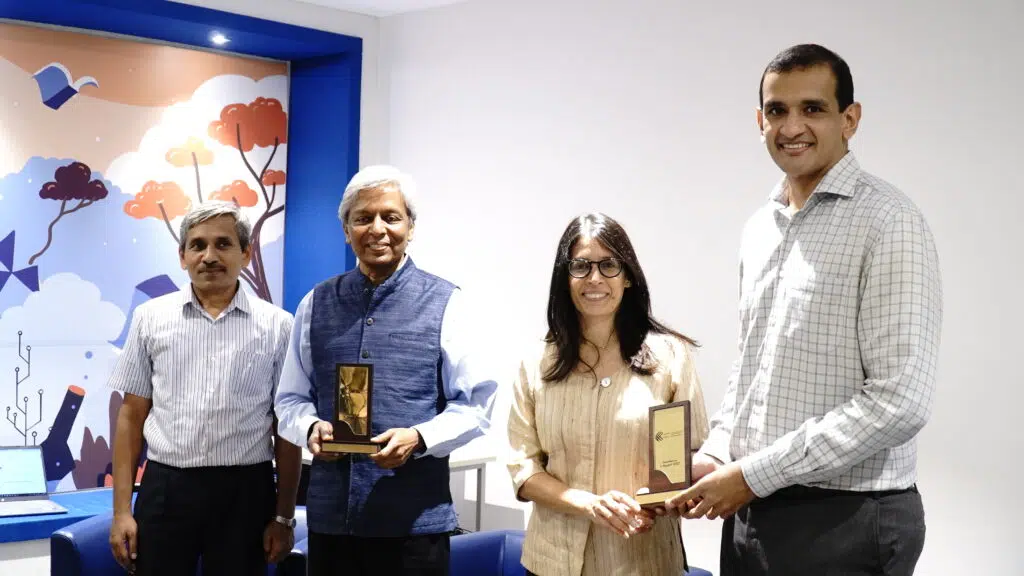The launch event at the Krea University Office in Chennai marked the collaboration between Krea University and Sapien Labs. Also in attendance at the event were Kapil Viswanathan, Chairperson of the Executive Committee of the Governing Council at Krea University, Dr Tara Thiagarajan, Founder, Sapien Labs, Dr Ramachandra Guha, Distinguished University Professor, Krea University and Dr Shailender Swaminathan, Director, Sapien Labs Centre for Human Brain and Mind at Krea University.
The Sapien Labs Centre for the Human Brain and Mind at Krea University is a collaboration between Sapien Labs and Krea University with an aim to establish a Centre for research and learning related to the human brain and mind. The Centre seeks to track and understand the impact of our changing environment on the human brain and its consequences for the individual and society so that it can be managed to mitigate risks and enhance outcomes. The collaboration will bring together cross-disciplinary faculty, large-scale acquisition of multi-dimensional human physiological data, cutting edge data workflows, and engagement with the non-profit, start-up and government sectors.

Speaking at the inauguration, Dr K. VijayRaghavan said, I congratulate Krea University for setting up this centre, which I think is wonderful. The human brain is amazing. The number of nerve cells in the human brain is in excess of 86 billion neurons. The brain is extraordinary and we struggle to understand the complexity of the brain. One way to go about this would be to have an Indian brain collaboration. The failure in our system is the lack of collaboration between institutions, individuals and people working within institutions. So institutions like Krea that are growing, need to be collaborative to drive this. This collaboration can push knowledge, what we can learn, discover, interpret and apply. If you have to be prepared for the unknown, then the only way to be prepared is by exploration, logic, principles of science and having people understand that. Centres such as this will go a long way in understanding the language of the brain.”
The Sapien Labs Centre for the Human Brain and Mind at Krea University also intends to build a globally distributed infrastructure for large-scale, real-time data acquisition and insights as well as development of interventions and tools that can become scalable products and services embedded in the world to move the needle.

Speaking to the audience on the collaboration, Dr Tara Thiagarajan added, “I am excited to announce the launch of the Sapien Labs for Human Brain and Mind at Krea. We – Krea and Sapien Labs – share a mutual desire to further understand the human brain and mind. We share with Krea the focus on bringing together research across disciplinary boundaries and also enabling real-world impact from this research. One of the core focus areas of this centre will be to define what causes a decline in mental health. Soundness of the human mind is really fundamental to everything that we do and what humanity could create going forward. Soundness of the human mind includes our functional capability across a number of different domains of function that really allow us to navigate the world to come together, create the future, and also to live peacefully together.”

Prof Shailender Swaminathan, Director, Sapien Labs Centre for Human Brain and Mind shared the vision of the Centre and said, “We have our challenges but am delighted that various institutes from different disciplines have evinced keen interest to collaborate with this centre. There is a lot of learning for all of us and this humility to learn is seen from top minds across institutes. One particular area will be our attempt to collate high quality data. This is an initiative that requires a lot of data collection and we would like to set world-class standards in genuine data collection.”
The collaborative initiative includes data acquisition support from LEAD at Krea University using its extensive infrastructure and collaborating with other partners where necessary for medical or physiological data
To know more about the Research Centre, click here
